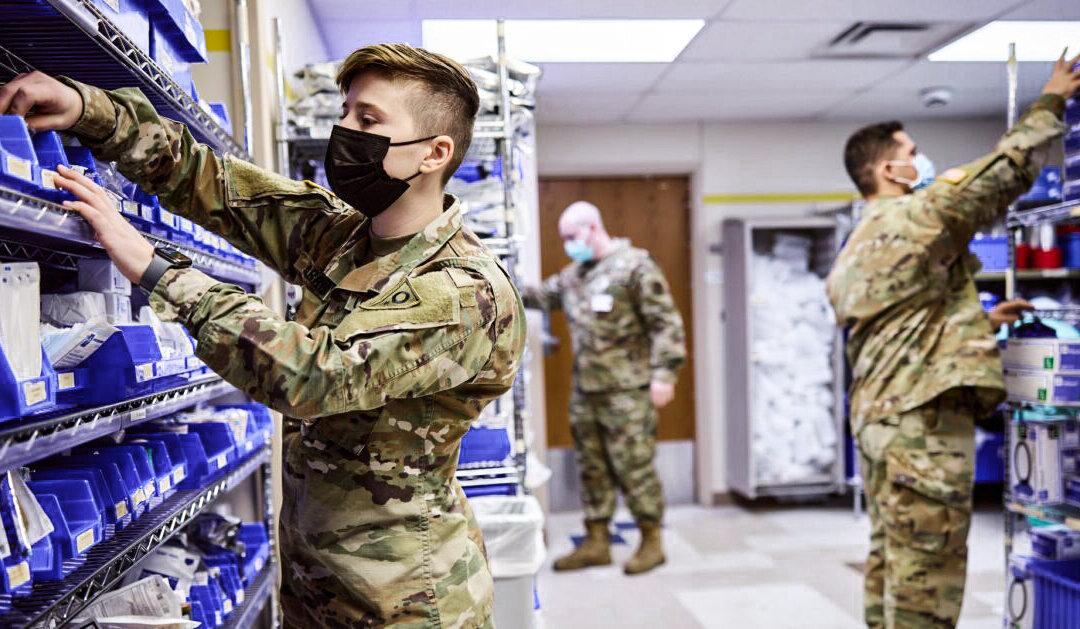Nearly 40,000 troops in the U.S. Army National Guard who have rejected COVID-19 vaccine shots are set to face penalties after the vaccination deadline passed on Thursday at midnight.
Army National Guard and Air National Guard members were mandated by the Defense Department to be fully vaccinated by the deadlines set by each military branch. Defense Secretary Lloyd Austin warned last August that those who refuse to comply would be unable to participate in drills, get paid, or put their service days toward their retirement.





